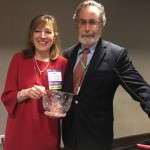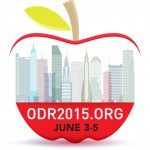The Nineteenth International Online Dispute Resolution Forum will be held in Williamsburg, Virginia, USA on October 28–30, 2019. It is being hosted by the National Center for State Courts in collaboration with the National Center for Technology and Dispute Resolution at the University of Massachusetts Amherst. The call for proposals and information about the conference, the main annual meeting of the ODR field, is available on www.odr2019.org.
Author: Leah Wing
International ODR Forum takes place in Auckland, New Zealand November 14-15, 2018
The annual International ODR Forum Innovation and Impact: Online Courts and the Changing Landscapes of Digital Justice is being hosted by the New Zealand Centre for ICT Law, in the School of Law at Auckland University, November 14-15, 2018. The two key themes, Innovation and Impact, are well-presented in an exciting line up. See the conference program and come join the gathering in New Zealand!
Online Dispute Resolution – Justice Re-Imagined Conference, June 27-28
The Online Dispute Resolution – Justice Re-Imagined Conference will take place in Liverpool, June 27-28. It will cover ODR, Smart Contracts, AI and blockchain, standards and ethics, and more! Join 39 speakers from 19 countries for only £150 + vat.
Report issued on EU ODR platform
The European Commission adopted its first report on the functioning of the Online Dispute Resolution (ODR) platform.
ODR 4 Refugees: Access to Justice App
Innovation for justice–ODR Style! A creative new app will offer much needed increased access to justice for refugees: ODR 4 Refugees. Designed by ODREurope, it will provide access to multilingual and culturally relevant online mediation services via smartphone technology. ODREurope’s press release states: “We have been monitoring the refugee crisis in Greece for the past two years and we have noticed that refugees had no access to dispute resolution mechanisms but they all had third generation smartphones…Therefore, we thought that smartphones could be the ‘fourth’ party in offering refugees online dispute resolution services…the app is easy to use and has several great features as well.” Institutions, companies, and individuals are welcome to donate to assist in the cost of development.
New book by Amy Schmitz and Colin Rule is a game changer!
The New Handshake: Online Dispute Resolution and the Future of Consumer Protection offers a groundbreaking innovative solution for addressing the challenges of cross border e-commerce ODR and is a must read for everyone who cares about access to justice, e-commerce, and ODR! Authors Amy Schmitz and Colin Rule not only present a vision of an effective global ODR system but, importantly, illustrate its feasibility, providing a concrete set of criteria for systems design. Fresh off the press, it is available from the American Bar Association.
Ethan Katsh is presented the prestigious D’Alemberte-Raven Award by the Dispute Resolution Section of the American Bar Association.
The award “recognizes leaders in the dispute resolution community for their significant contributions to the field.” And these include nothing short of being the founder of the field of online dispute resolution, conducting the first research experiments in ODR, co-authoring the first book on ODR (Online Dispute Resolution: Resolving Conflicts in Cyberspace, 2001), founding the National Center for Technology and Dispute Resolution, and fostering the development of the theory and practice of ODR throughout the globe. A prolific author, Ethan’s most recent work is Digital Justice: Technology and the Internet of Disputes, co-authored with Orna Rabinovich-Einy (Oxford University Press, 2017); another brilliant and visionary contribution. You can watch a video of Ethan’s acceptance speech here. Congratulations Ethan!
ODR Forum 2016 Beijing: Consensus Reached on Value of ODR
ODR2016 was held in Beijing September 18-20 and the following document was adopted:
ODR 2016 Beijing
Beijing Consensus
The world faces a tremendous challenge with the exponential growth of cross-border transactions and disputes. The Internet has significantly lowered the barriers to cross-border transactions and communication, resulting in large numbers of disputes. Two recent projections underscore the urgent need for novel avenues for addressing cross-jurisdictional and other online disputes. For one, in the G20 summit in Hangzhou, China, it was projected that cross-border e-commerce will involve 2 billion customers by the year 2020. In correlation with the growing number of cross-border commercial transactions, another recent projection is that the number of disputes will continue to rise sharply, reaching a pinnacle of one billion e-commerce disputes annually by 2017, and a million disputes a day by 2020. Addressing these disputes will be a major challenge to the construction of sustainable and healthy trade and social relations in an Internet society.
Against the challenges of the 21st century, ODR has much to offer as it has proven to be an invaluable channel, enhancing access to justice in a global digital world. ODR has been successfully used across the globe in the domain of e-commerce, social media, family disputes and a variety of other sectors. ODR nowadays has applications for both ADR and court processes and there are a growing number of ODR tools and systems some of which rely on human intervention, others employing a fully automated process, and those that are hybrid processes.
At this point we further believe that the time is ripe for the articulation of, and the commitment to, a set of ethical principles specifically designed for developing and conducting ODR. The adoption of principles would further increase trust in ODR and the e-commerce setting and ensure the delivery of high quality ODR processes. There are Ethical Principles for ODR developed collaboratively by the ODR community that can provide an anchor for such an endeavor (http://odr.info/ethics-and-odr/).
Hence, the 2016 ODR Beijing forum calls for further collaboration among states, enterprises, universities, institutes, researchers and practitioners engaged in relevant areas of research and practice to further advance these overarching ethical principles of ODR and work together to further the use and quality of ODR, a vital component of a digital age justice ecosystem.
Join Cyberweek Conference: November 2-6
Join us for the 18th Annual Cyberweek Conference. Discussion forums, webinars, product demonstrations, and other activities are happening all week with participants from around the world. To register click here, to para acceder Cyberweek en Español click here, and to view the program schedule click here and follow on Twitter at #cyberweek.
ODR2015 International Forum will be in New York City June 3-5, 2015
Registration is now open for ODR2015, to be held in New York June 3-5, 2015. Hosted by Pace Law School and the National Center for Technology and Dispute Resolution and held at the Pace University campus in Manhattan. Keynote speakers include Richard Susskind, author of Tomorrow’s Lawyers, Internet pioneer and entrepreneur Esther Dyson, Modria Founder Colin Rule and Doc Searls, co-author of the Cluetrain Manifesto, as well as several internationally recognized ADR/ODR experts. Registration is limited and program information is accessible at http://www.odr2015.org. Please register soon. We hope that you will be able to attend.


